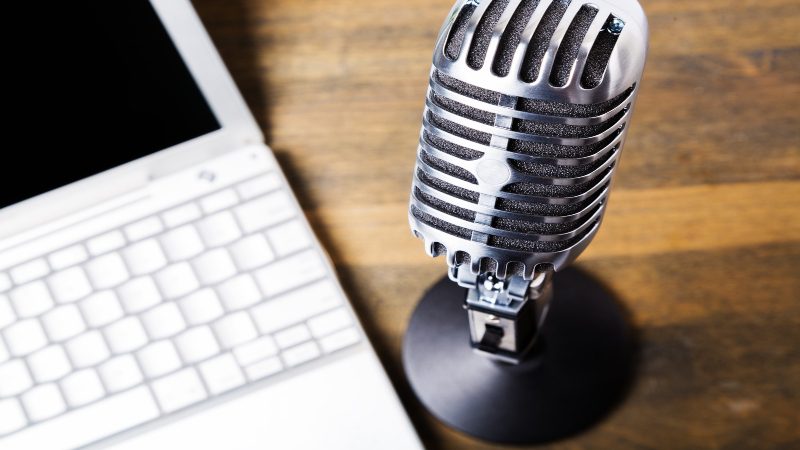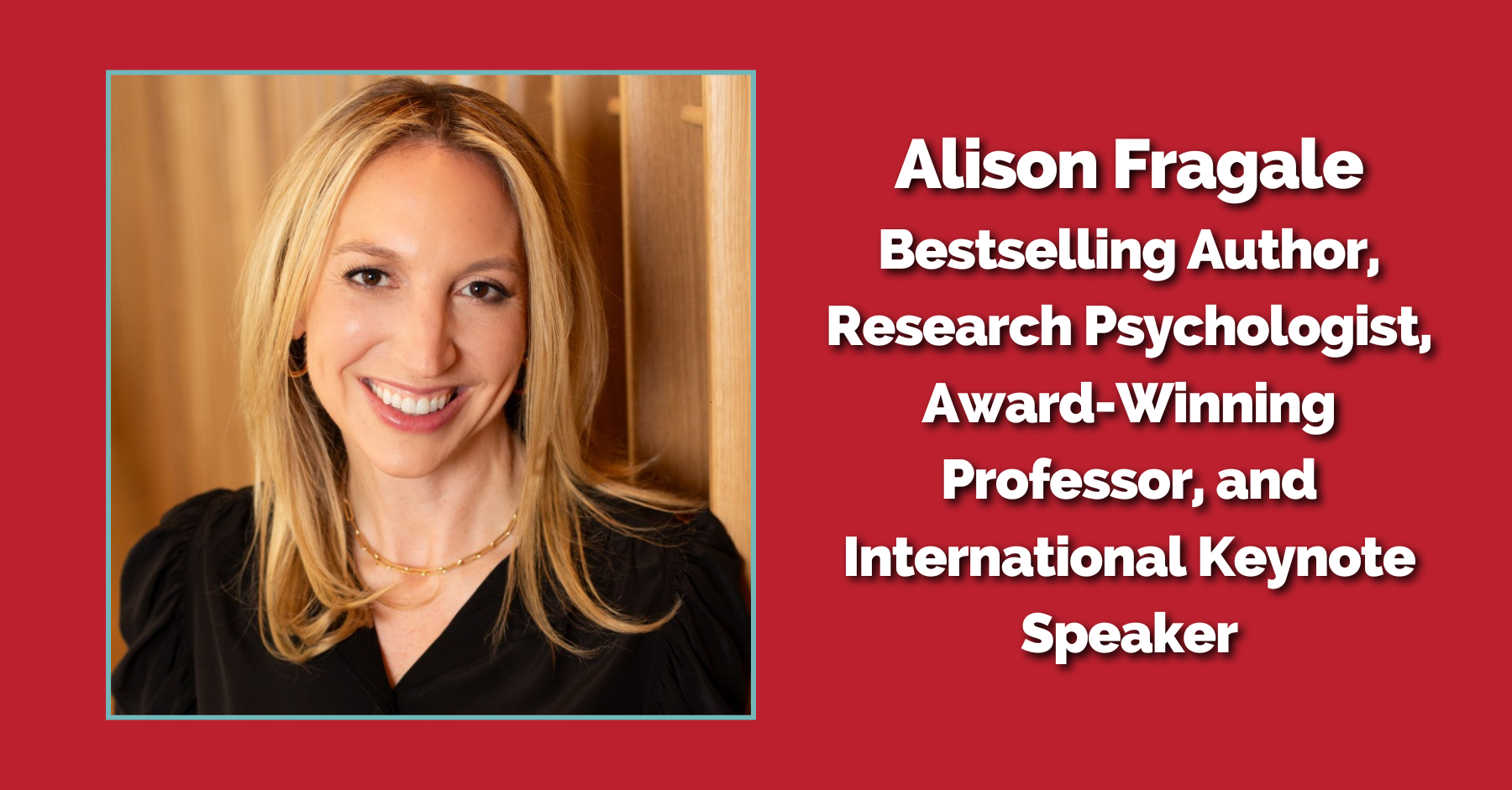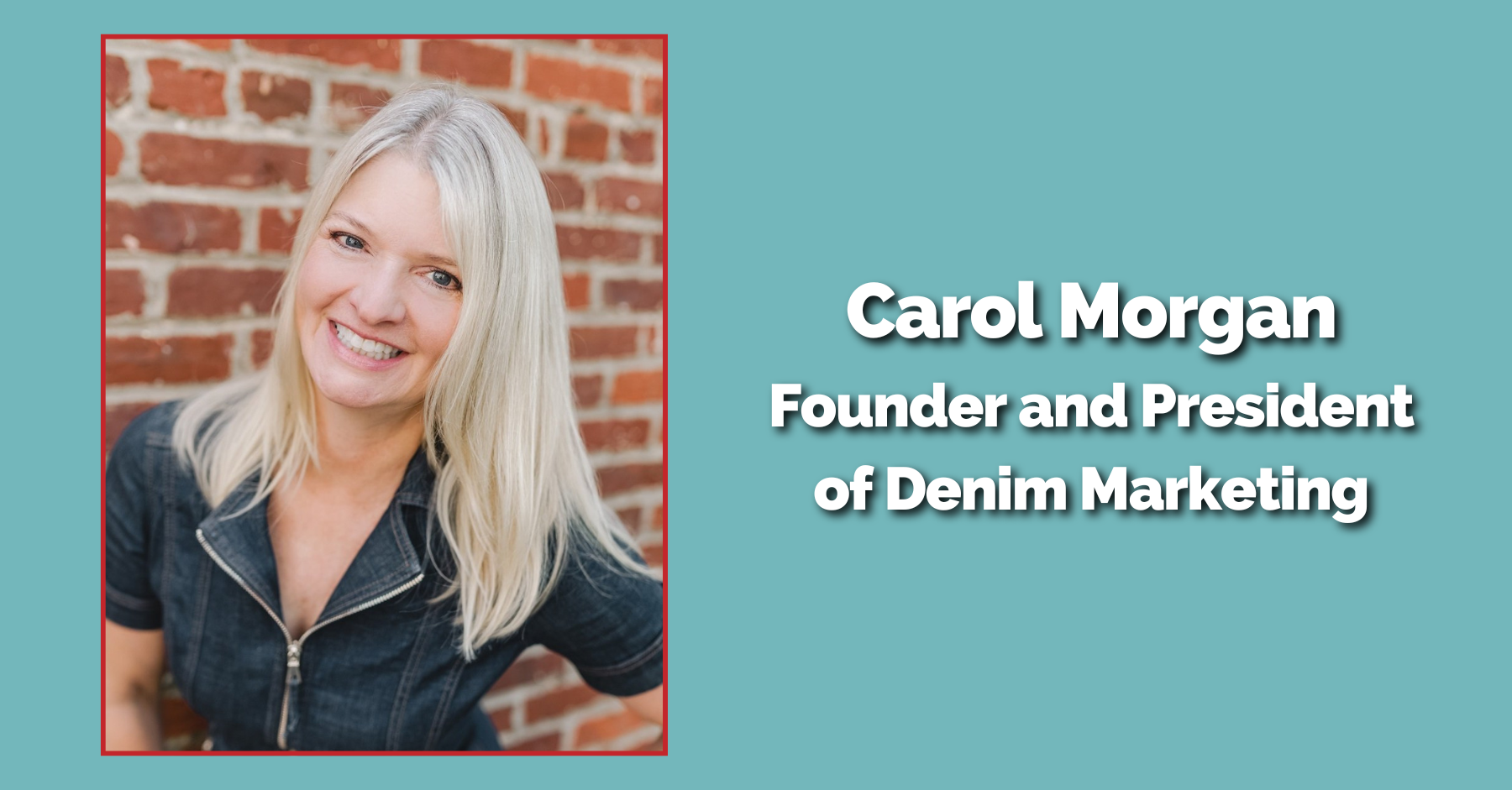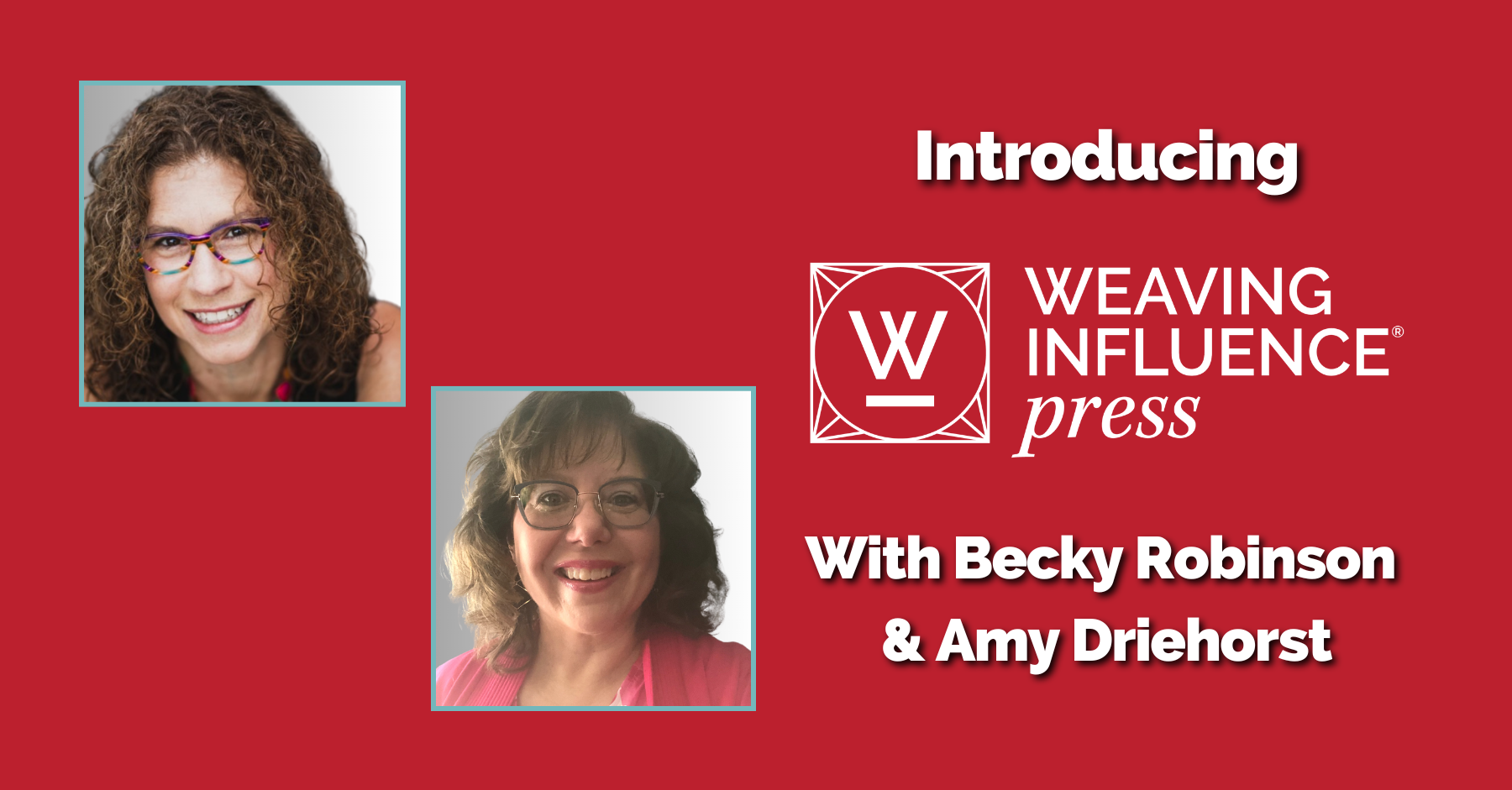Photo by olegdudko / 123rf.com
Click here to listen on your device and subscribe!
Welcome to Season 2 of The Book Marketing Action Podcast with Becky Robinson, where we give you information that you can immediately implement to increase your influence and market your books more successfully. This month, we are focusing on the topic of podcasts. In this episode we are joined by Case Lane, a writer, podcaster, and entrepreneur.
About Case Lane
Becky: As we dive in today, I hope you’ll take a moment to tell our listeners about your work in the world and what you’re most passionate about in your work.
Case: Absolutely. I’m a writer, a podcaster, an entrepreneur, and I prepare aspiring entrepreneurs to get started in this exciting world of online business. And in doing that, as a writer, I started guest podcasting and realized that there were not a lot of really good resources on how to do it yourself. You could always hire an agency, but how do you actually do it yourself with so many, now 2 million podcasts that are out there, and just so many topics you could talk about. So I started, I taught myself how to do it, had started guest podcasting, and that built the tools and resources for other people to do it as well. I think it’s just such an outstanding way to get your message out there, to connect, to build your own network, and to really use this new exciting communication medium to launch whatever you’ve decided to do with what you’re doing in the world as well.
What value have you found in being a podcast guest?
Becky: Wonderful. Well, that’s what we’re going to talk about today. I’d love for you to start by talking to our listeners about the value that you found and that your clients have found in being podcast guests?
Case: Yeah, absolutely. This is an opportunity to really state your message. You could be a writer and so you have your book you’ve written about a particular subject, could be fiction, and this is your chance to tell the audience about it in this listening form. Podcasts have grown so much recently, the last few years especially, so people enjoy just being able to listen in on conversations that they couldn’t hear before and to get some insightful information. If you’re a writer, you’re telling different stories about it. You’re telling me maybe about your research process that led you to the particular subject or the inspiration for your fiction or something like that. So it’s a chance to reach a bigger audience. The podcasts are working together to add value because it’s for their listeners, and hopefully their listeners become your listeners in a way that is through the podcast as well. And, if you’re an entrepreneur, you’re promoting your product, maybe you’re just a subject matter expert on something new. So you can also get that out there. So for people, even if you’re afraid of public speaking, they go nope, it’s too nerve-wracking, but podcasting is a comfortable way to get into public speaking because it’s your podcast or having that conversation. Sure, millions of people hear it later, but for now it’s just the two of you and it’s a recording that you could keep pointing back to. It’s an asset that sits out there. You can tell other people about it, which we hope you do. You know that you could also, let’s say somebody wants to bring you on as a speaker somewhere, you can say, “Oh, well, I did a podcast interview, you can listen here.” So it has a long shelf life. Right now, podcasts are basically lasting forever, because there’s no reason to take them down, because somebody paid for the hosting. So that’s something that you have, and you could just keep using it and go back to it all the time.
What is a guest star?
Becky: I love that. So before recording with you, I did read an article that you wrote about this idea of being a guest on podcasts, and you called this the guest star. So talk to us about what you mean by being a guest star and the value that creates?
Case: Oh, thank you for checking out my blog. The analogy there is what do you think about when you’re watching a TV show or it says special guest star, special guest appearance? That person is bringing a little something extra to the normal routine of the show, especially if it’s a big name. As an audience, everyone has a little bit of anticipation, like “Oh, there’s something new and exciting going to be happening this time.” There are podcasts that have guests on all the time and there are a lot of listeners who will look at the podcast episode descriptions and that’s what they’re looking for, like, “Oh, I want to hear what this person has to say about this.” So they’ll listen to that episode because of that particular guest. So that’s the role that you start to play. If you’re doing guest podcasting, you are providing that extra piece of excitement for the show and obviously, you want to be delivering value all the time because the reason that every listener wants to hear you is because you’ve got some value for them. I personally listen to a lot of podcasts, and I personally like the ones that I call “teaching podcasts,” where you actually have to sit there and take some notes because suddenly you realize that the value is something that you really want to go back to. And so you have to either make a note of what show it was or take some notes while you’re doing it. But that’s really what it’s about. It’s being that person who is providing that little extra for that particular episode.
What are the best practices when pitching a podcast host?
Becky: I love that concept. So I’m curious, you talk about training people to do it themselves in terms of seeking these guest podcast opportunities. So I’m hoping that we can spend a few minutes talking about some of the best practices associated with doing that. And I’m wondering what elements you think are essential to include if you are pitching a podcast host because you want to be a guest?
Case: Yeah! Connect what you’re going to say to what that show is about. So do your research, you make sure you read the show description, you’ve listened to some episodes, and you could have seen, for example, that there was a previous guest who talked about the same general subject that you talked about. So you then want to bring your angle to it, make it something different, there’s more to the story, something like that. So you really want to make sure when you’re creating that pitch that you really make it clear to the podcaster that you know what this show is about.
I don’t care if you’re doing 200 pitches a month, each one you should treat individually, giving its own time of research, where you really do reach out in a very specific way.
So you’ve looked at their show and say, “I realize you’ve not talked about this, or you have spoken about this, but you haven’t spoken about it in this way,” or “Here’s a brand new topic that I think your audience might be interested in, because you did this,” and really show that you can make that connection with the podcaster. I think if you get that into your pitch email, that’s really helpful because if you’re a podcaster, if you’re on the other side of it, as you’re receiving pitches, and sometimes they don’t even put the show name in and you can just tell it’s a template, you don’t know why you have to if you’re forcing the podcaster to think about who you are and what value and all that kind of stuff. Now, you just have to put that into the pitch right upfront. Save the podcaster the time and the effort by doing all their questions for them ahead of time. And then you’ve really set yourself up, even though you still might not get a response. But at least you’ve done a good job in presenting what your particular subject could be.
Becky: Yeah, I love that and I keep thinking about this pitch that I received where the person pitching said, so and so was a fan and has listened to your show, and then proceeded to offer a pitch that had nothing to do with what we talked about.
So is there anything else that you think podcasts are looking for, that people can keep in mind to help them set themselves apart when they’re going out to seek these opportunities?
Case: Yeah, when you’re doing the show, you want to think about how is that show going to be promoted? So there’s a lot that goes on. A lot of podcasters talk about this: how do we get the show promoted? Because obviously, there’s the big podcasts, top 100. But there are 2 million podcasts and there are people who are talking about so many different subjects. So you want to be able to present to the podcaster a way that makes them stand out in whatever the particular industry or genre is. You want to help them think about a way that they have a specific angle or can also reach maybe even new people, and it could be hashtags or something like that, like a way that you can really draw attention to that particular episode and why it means so much more and why it’s different and how you could help them promote it. I think it’s something to watch out for, it’s going to get more and more sophisticated because the big shows are getting a lot of attention and money and so on. So the other shows are looking at how they could differentiate themselves, what could be some of the subjects that they could be talking about, how they could do more exciting things with promotion, and what I’m trying to do is go back to shows as well and point out, okay, I spoke about something on this show or something on that show, and then tie that into things like my blogs and other things. So I think that’s what you want to keep in mind. How can you help make sure that that episode gets out there and people are listening and are finding it, because podcast discovery is mostly word of mouth, right?
A DIY podcast approach to discovering and pitching podcasts
Becky: Definitely. So you mentioned, Case, how many podcasts there are out there right now. So as someone who’s looking to take a DIY approach to discover shows that might be a fit for their topics and then to pitch those podcasts, what tools or tactics do you recommend to people to find the right podcast to even pitch?
Case: Yeah, so what you’re going to be doing is using the podcast directories. Now, the directories are the places where all the podcasts are listed. And there are some big ones like Apple and Amazon Music, and so on. And then there are all sorts of other ones that you might not have even heard of, that are either tied to apps, or they’re just websites. Now I’ve looked at a lot of directories. I’ve looked at more than 80, and there is not one that gives you all the information you need right upfront, so you have to play with it a bit. There’s a couple of things you really want to look for.
- So we talked about, yes, there are 2 billion podcasts, but podcasts last forever. So they’re not all active and as somebody who wants to be interviewed, you absolutely want to know, what was the last day of the last episode after the upload date? When was the last time the show was uploaded? Because sometimes you look oh, it’s a great description, it’s perfect for your topic, it’s awesome for your book, and then you realize, oh, they haven’t done a show in a year. And the thing is, most podcasters, don’t do a final episode. So there’s no way to sort of glance at it and realize it’s over. Also for some podcasters it’s not over, they’re just taking a break. I actually give it a six-month window, if I see a show was posted in the last six months, and everything else looks good, I will reach out to the podcaster to say, “Hey, are you still doing your show?” and tell them the pitch. So you want to watch for that.
- Then you want to look at the episode descriptions. I mentioned before, make sure that you’re looking at a show that does interviews, look at episode duration. If every episode is two to five minutes, maybe it’s just tips of the day and it’s not an interview show. So everything I get from the descriptions podcasters are writing themselves. Descriptions could be anything from one or two lines to five paragraphs telling you everything that they need to.
- So that’s another use, you have to listen to the show because sometimes the episode descriptions are all the same. If you are unsure, you listen to the show.
- Make sure that if you’re going to use the podcast directories, the first thing you want to do is get your keywords together, and that’s based on whatever your subject is. Pick a broad range of keywords, because most of the directories there, they’re not sophisticated search engines like Google or Amazon, so they’re only looking at show titles. So I always use this example, if you speak about tulips, you find there are 42 tulip podcasts. But you also want to look up flowers, you’re going to search for gardening, search for fragrance. So you’re going to be searching by keyword in these podcast directories. So create your keyword list first. And then when you go into the directories start searching, and you see the results come back. You check the last episode, upload date, make sure it’s an active show. And then if it looks active, begin your research, check the show description, the episode descriptions, the episode duration, listen to the show, then you want to go out to the website, see if there’s a show website, a host website, that’s where you’re going to find the contact information most of the time. When you’re on the website, you have a chance to take a look at the host bio, see if there’s any connection there. So again, you could put that into your pitch like, “Oh, I noticed you worked at such and such a place.” And that’s the process.
So it’s a process of taking the time to go through everything. But in my opinion, when you do it yourself, you give yourself a lot more chances to interview. Because I’ve seen some of the agencies and I don’t know them all, obviously, but some of the ones I’ve looked at, maybe for what they’re charging, might give you one or two interviews a month. But if you’re doing your own research, you could probably come up with dozens of interviews a month. And not only that, when you’re reaching out directly to the podcaster, you’re actually building your network at the same time, because you’re reaching out to people who are talking about what you’re interested in talking about. So these are people you might come across later at conferences, or you could collaborate with them, or all these things. You don’t get that back and forth if you are just talking to your agency that is sending anonymous emails out to podcasters. You don’t even know what they say. So I go through the process, you put as much time into it every day or once a week or as often as you like, based on how many shows you really want to interview on. There are a lot of shows to go through. So if you’ve set a target for yourself, but you want to do 100 interviews, as you go through this process, you’ll get to 100 interviews.
Becky: Wonderful! That is so rich. I’m learning lots from you as well, and I agree it makes sense that if I got a pitch that was well researched, as I did from you, then chances are I’m going to reach back out and want to find out more. So you getting on this podcast is a great example of your own process and approach working really, really well.
Case: Yeah, I mean, I should say we hadn’t met before and that’s what’s happened throughout this entire process. I’ve had an opportunity now with different podcasters. I mentioned doing collaborations and so on, I’ve actually gone on and done different projects with people that I’ve met just through this podcast process. So think of it more as a broader approach to everything that you’re doing, your writing, and your business, as opposed to just a one-off type of interview.
How can you drive traffic to get the most value out of being a guest?
Becky: That’s really helpful. So one last question today, Case. I’m curious, once you’ve landed a show, once you’ve recorded the episode, what you can do after the show, that increases the value to that podcast host, and drives traffic to that episode to make sure that you get the value out of being a guest?
Case: Yeah, absolutely have a plan about how you plan to promote. So based on, for example, social media, of course, is the most popular way. So depending on which social sites that you’re on, have set up, even create templates for yourself. It’s okay to do that, we talked about really personalizing with the podcast, what you could do is personalize every single post as well, but have a template ready so that you can go through it quickly.
You’re really organized, Becky, but not everybody is. So a lot of podcasters suddenly, one day you receive an email that says, “Hey, your show’s live”, and you’re like, “Oh, I had 100 things to do today, I’m not gonna be able to promote right away.” But again, have a plan. As soon as I receive an email that the show is live, I will schedule on my calendar within the next whatever, 72 hours or something like that, I will post all of the promos. Get your work organized because some hosts do not send any graphics or images and so on. So have templates for that, also have one for Instagram size, Twitter size, all the different ones have it all set up ahead of time. You can even ask the podcaster, let’s say, the links, some podcasters send you the links for their website. I think that’s the preferred way to promote that way you drive people to their website, but if they don’t, go and grab the link off of Apple podcasts, you can find those very easily. So just put that plan in place.
And then if you have an email list, include promotions to your email list as well. And as I mentioned before, you can also go back to those episodes all the time, that’s a lasting asset that you have out there. So if somebody says, two months from now or 10 months from now, “When were you speaking about guest podcasting and provided a summary,” I said, “Oh, I did that on this show,” and then you can go back and you can have them all organized on your website, app graphics of the show with a little write up about what they’re about, and just point people back there. So you could always go do that. So obviously, set up your plan about how you plan to promote, create your template, so you’re not thinking it through every time, like I don’t know what to say, and then have a process also for putting something on your website to point people back to the show.
Action Steps
Becky: Perfect. Well, this episode has been full of possible actions that authors may want to take to become podcast guests as a means of marketing their books. But I’m wondering if you could pull out two favorites, Case, because we always, at the end of every episode, want to give people things they can implement today.
Case: Yeah, absolutely.
- So I’ll go back to selecting your keywords. I think that’s really, really important because as I mentioned, the podcast directories just don’t have good search engines. And if you put in a keyword for your subject, you might miss a whole bunch of shows that don’t use that specific word in their title. So really think broadly, spend some time thinking through what are all the types of keywords that a podcaster could be using to talk about this subject. As for guest podcasting, I reached out to marketing, podcast, brand podcast strategy, influencing, oh, you know, all these different things, because I try to think broadly about who might be talking about that subject.
- And then the other thing, so you do that, and then there’s a different podcast directory I mentioned. So you’ll go into the one and what I like to do first is just make a long list of potential shows before I start researching one by one. So I have a chart that I track everything, it’s a good idea to track everything because a lot of shows have similar names. So you want to make sure you’re not looking at the same one all the time. A good directory to do that, for example, is Listen Notes. Listen Notes provides about one or two lines of description the first time you’re searching. So you could just make a quick list of say, 100 shows, and then go in and search each one, one by one, to find the information to do that longer search that I talked about. So I think that’s a more efficient way to do it. Instead of giving yourself a list so you can have a sense of how many shows you might be able to get to. And again, you’re not going to find all the information for all of them. It’s not all there, even contact information. Sometimes it’s hard to find but it is the approach. I always say, keep going on to the next one. If you don’t find the information, move on to the next one, because there are so many shows that you could be looking at.
Resources
- Learn more about Case and the work she does here.
- Follow Guest Podcasting on Facebook.
- Connect with Case Lane on Twitter, Instagram, and YouTube.
- Use this free checklist to find the perfect podcasts for a conversation with you.
If you found value in today’s episode, we hope you’ll take a moment to share it with someone else who might benefit from it. If you have any questions or topics you’d like us to cover, please email Becky Robinson here.
Click here for our free resources.
If you enjoyed this episode, please leave us a review.





One Response
What a great podcast rich with content! All the right questions asked, the fantastic knowledge shared, and resources provided to direct us. Thank you so much for outstanding support as always!